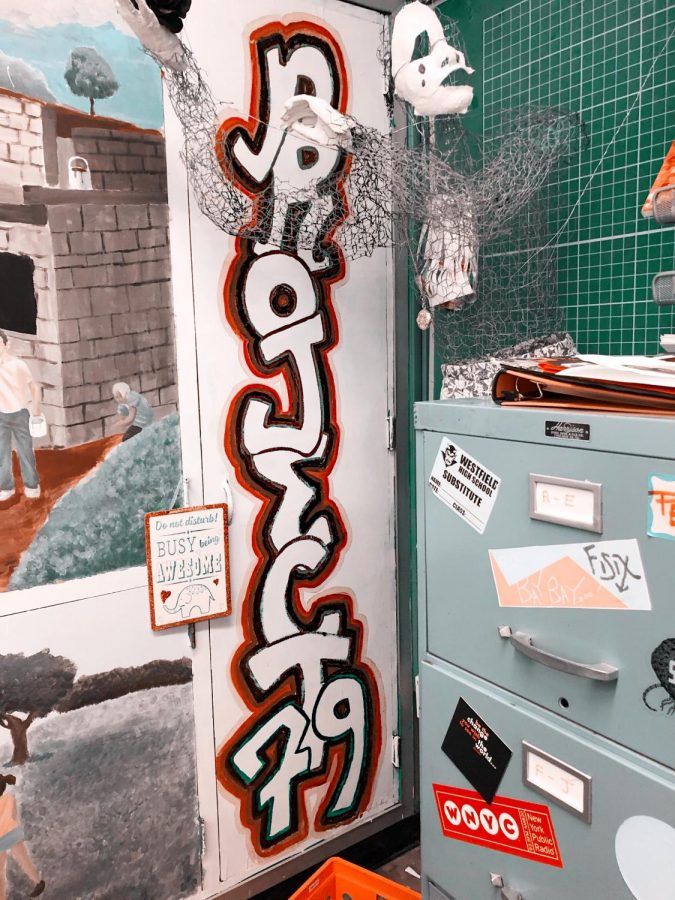Project ‘79 celebrates its 40th year
Photo Audrey Pucciarelli
Artwork in the Project ‘79 room
Celebrating its 40th anniversary this year, Project ‘79 has grown to become a beloved community within WHS. Yet, the foundation of the program is still unknown to many.
The name originates from its inaugural year, 1979, when the program was developed with the goal of helping academically average to above-average students who were struggling in the traditional school setting.
Project ‘79 students receive the same education as WHS students. “We offer core content classes that are delivered differently than in the non-Project setting, so we follow the same curriculum, but we approach the curriculum differently,” said Project ‘79 Coordinator and Teacher Jackie Spring. Project ‘79 differs from traditional schooling with smaller class sizes and close student-teacher relationships throughout high school.
Project ‘79 is one of the longest standing high school level alternative education programs in the country, and with its passionate staff has helped hundreds of children throughout its four decades in WHS. Mr. Alan Lantis, one of Project 79’s founders and original teachers explained how the program could have easily been shut down in its beginning years if it were not for the dedicated students and teachers who worked hard to prove its effectiveness.
“We put a lot of time and effort into it in the beginning, it was a rough go the first couple of years,” said Lantis. “We were fighting against a lot of forces back then, people who thought, ‘what are they doing?’”
Project ‘79 students are surrounded by the same group of students for a majority of their high school careers, so they can develop strong bonds and form close relationships within the program. Lantis said, “[We wanted to] develop an identity for the program, develop a sense that the staff and the students were in it together and develop a place where those kids felt at home, felt challenged, did not feel left out or singled out or afraid to be who they were, and again I think it has succeeded because it has maintained that.”
What’s also special about the success of Project ‘79 is that not much has changed about the program since 1979—its current core values are consistent with those from the beginning. According to Spring these values include “[looking] at kids as humans first and students last. [Finding] what it is that makes you motivated, what it is that you are interested in, what it is that you can bring to a classroom and where the areas are that we can really push you to grow.”
Most WHS students enter Project ‘79 their freshman year, but are welcome to join and leave the program during any grade. Counselors, parents and teachers can recommend a student for Project ‘79, but Spring emphasized that the program wants students who are willing to join and want to succeed.
“The most important part of the referral process is that no one who comes into Project comes in kicking and screaming, that’s not our thing,” Spring said. “Teachers and students choose to come and I like to say they choose to stay.”
By the end of a student’s four years in Project, the program grows to become more than just a classroom—it becomes a supportive community. Project ‘79 sophomore Alex Lloyd said, “By the end of Project ‘79 you ultimately know these people better than if you had happened to meet them in one of your classes for just one period.”
Everyone we interviewed shared a similar sentiment about Project ‘79: That it is a place to help students grow and learn as a team without the fear of judgement from others in the outside world.
“This room is not like any other room in the building on purpose because this is us and it’s what we care about,” Spring said.

